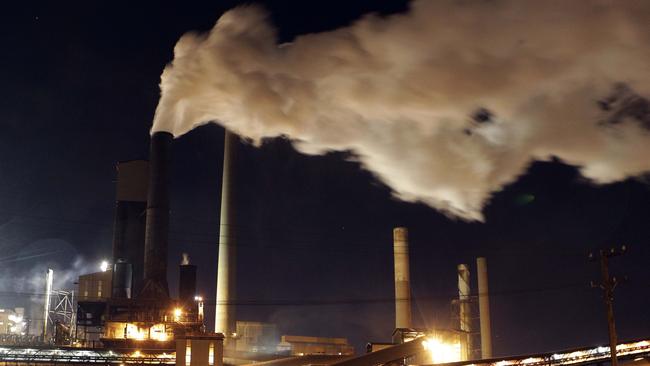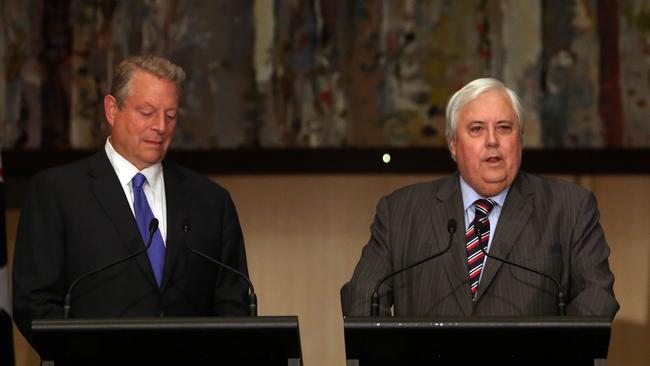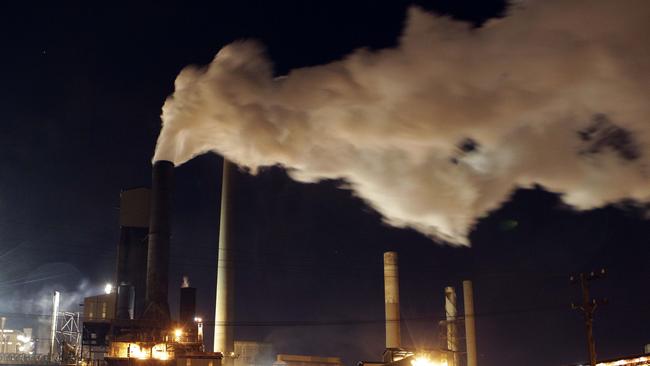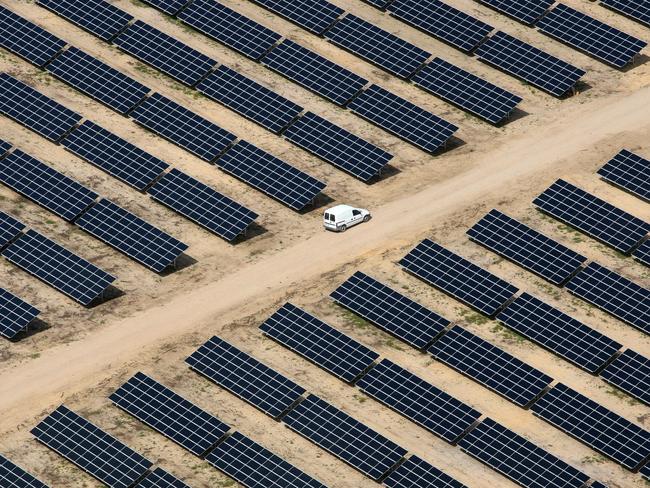Australia to be left with no climate change policy, after Clive Palmer decided to help axe the carbon tax
AUSTRALIA, the world’s largest per capita emitter, looks soon be left with no climate change policy; no carbon tax, ETS or Direct Action scheme.

KEVIN Rudd once described climate change as “the greatest moral challenge of our time”, but now after years of fighting Australia will effectively be left with no carbon policy.
With high fives and hugs, carbon tax repeal legislation passed the House of Representatives last night and with Clive Palmer’s help it will soon get the green light in the Senate.
But despite Australia sitting among the world’s largest greenhouse gas emitters per capita, the country will soon be left with no carbon pricing policy.
The carbon tax will be dead, killed off with the help of Palmer United Party Senators.
Australia, world's largest per-capita climate polluter, may shortly be left with no national plan to tackle global warming. Abbott at work.
— Adam Bandt (@AdamBandt) June 26, 2014The Abbott government does not agree with replacing it with an emissions trading scheme, and Mr Palmer has not made his desire for one, when our trading partners follow suit, contingent on his support.
Labor, the Greens and PUP all reject the Coalition’s direct action policy, meaning it too won’t be enacted.
Greens Leader Christine Milne yesterday expressed her concern that Australia will be left with no carbon pricing mechanism.
But admitting Mr Palmer has currently scuttled the Direct Action policy, government frontbencher Malcolm Turnbull this morning turned the tables on Labor.
“If they want to support Direct Action then it would be passed,” he told Channel Nine’s Today Show, citing the need for the Opposition’s help.
“The only reason there won’t be a Direct Action scheme is because Labor has not supported it.”
The new Senate, in which Mr Palmer controls the key crossbench voting bloc, will vote on the repeal legislation after it begins sitting from July 7.
Standing alongside climate crusader and former US Vice President Al Gore on Wednesday, Mr Palmer did throw his support behind keeping the Renewable Energy Target unchanged and the Clean Energy Finance Corporation working.
They could end up being be the only things Australia retains.

The Organisation for Economic Co-operation and Development (OECD) Environment at a Glance 2013 report found Australia had the highest per-capita emissions, emitting nearly 25 tonnes of carbon dioxide per person in 2010.
The report found we were second only to Estonia among for greenhouse gas emissions per unit of GDP among the 34 advance OECD nations.
Tony Abbott refused to confirm victory when addressing reporters in Sydney this morning, repeatedly declaring he is taking “nothing for granted”.
“This bill has got to go to the Senate and I’m optimistic that it will pass, but we’re not taking anything for granted, not taking anything at all for granted,” the Prime Minister said.
“I’m looking forward to the Government and the cross bench senators keeping their commitments to the Australian people.”
The PM said he is “encouraged” by his discussions with Mr Palmer and axing the carbon tax will be “an unambiguous good for our country”.
“This will be a $550 a year bonus for the families of Australia, for the households of Australia.”

It comes as other countries move forward with more aggressive climate change policies.
Earlier this month US President Barack Obama announced a plan to cut carbon emissions from power plants by 30 per cent by 2030, giving the states free rein to choose whether to do it by carbon pricing or other means.
In Germany more than 50 per cent of the country’s energy is not generated through solar power. Earlier this month its solar power plants produced a record 23.1 gigawatts of electricity per hour — equivalent to 20 nuclear power plants operating at full capacity. That equated to 50.6 per cent of the country’s energy needs.
Australia has solar capacity for just 1.1 per cent of our energy needs.




